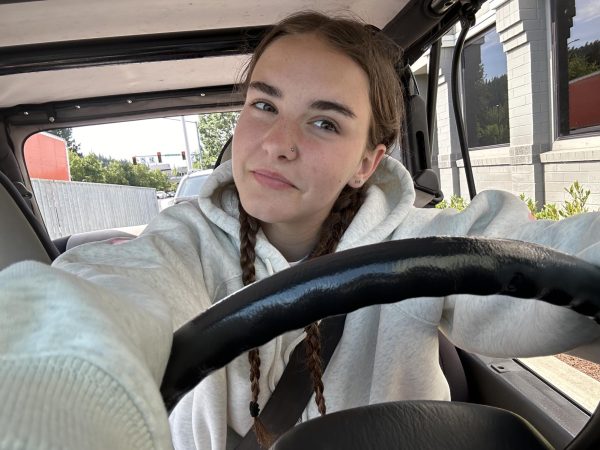
Housed in the main building of Franklin, across the hall from the French classrooms, is the Albina Early Head Start program. This program, which has been around since 1965, helps provide families across Portland with necessary childcare. The Early Head Start (EHS) program serves children ages six weeks to 3 years old who live in the Portland Public Schools (PPS) district. According to their Parent Annual Report, EHS served 516 children and families in the 2022-23 school year.
Albina EHS aims to “serve our community’s youngest and most vulnerable children with early learning, literacy, and emotional development,” according to their website. They have multiple dedicated teams and programs to best serve each child or family’s needs. Their teams include a nutrition team, health team, social service team, and special needs team. The organization’s center-based programs for Head Start (HS) and EHS are open from 7 a.m. to 4:30 p.m., Monday through Friday.
Along with HS and EHS programs, there are also resources available for teen parents at Franklin, McDaniel High School, Grant High School, Roosevelt High School, and Multiple Pathways to Graduation. According to the PPS Teen Parents Services page, “[Their] mission has been to provide teen parents with support and resources to help navigate their lives as parents and as students.” Academic support, counseling, and advocacy are available to all pregnant and parenting PPS students who meet the PPS eligibility requirements from 7 a.m. to 4:30 p.m. every weekday. EHS and HS programs are also accessible to parents attending Portland Community College at the Cascade and Southeast Campuses.
Inside the EHS program at Franklin, there are many teachers who provide childcare during the week. Lizz Tice, who has been a head teacher for six years, is very proud of the EHS program. Tice’s three children all grew up in the Albina HS program, and she was encouraged to apply to teach in the program by her son’s teacher. She “started out as a substitute teacher for about six months, then went on to be a teacher’s aide, and three years later [became] a head teacher.”
Tice explained that she didn’t need specific education or training to become a teacher; she simply “loved babysitting and working with children.” With the support of the Albina program, she received her Child Development Associate Credential and is currently working on getting her early childhood education degree. Both Albina programs follow a curriculum to help children learn while having fun. To set them up for success in kindergarten, the programs are more similar to a school than to a daycare.
Tice believes EHS and HS programs have a significant impact on low-income families in the community. She stated that the program is a great way for families to save money and provide their children with early education. Since there is an EHS program located at Franklin, Tice explained that teen parents have priority spots in the program, allowing them to finish their own education. This dedication to aiding teen parents sets Albina’s programs apart from many other early education or childcare programs.
Devyn Riley is a senior at Franklin with a family member who works for the program. He believes in the importance of HS and EHS programs, explaining that they allow “teen parents to fully participate in high school” without worrying about childcare. Riley hopes that in the future, more PPS high schools, besides just Franklin and Roosevelt, will host an EHS program so that teen parents won’t need to experience such difficulty to enroll their children in a quality early education program.
Most individuals at Franklin are well aware of the cute babies that roam the halls in strollers or hand-in-hand with teachers. However, they often don’t understand why the young children are there or mistakenly believe EHS is simply a daycare program. “When we walk in the halls there are a lot of kids that ask why there are babies here,” Tice revealed. “[So] we definitely hope more [people] learn about us, [especially those] who may need help or a place for children to go while they work or finish school.”
Though there is limited information about the program’s existence or influence amongst the greater community, Tice explained that the program is thankful to be at Franklin. “All the staff and students are great at saying ‘hi’ to the children walking by,” said Tice. “[And the children] love saying ‘hi’ to everyone.”
Tice hopes that, in the future, the program will gain more recognition and even provide volunteer opportunities for students interested in early childhood education. The Albina EHS program at Franklin certainly has an incredibly positive impact on the community and will hopefully continue expanding to best serve each and every child and family.


































